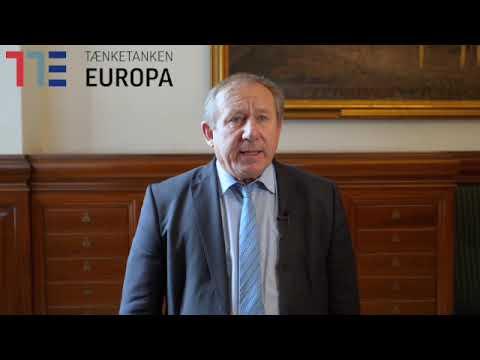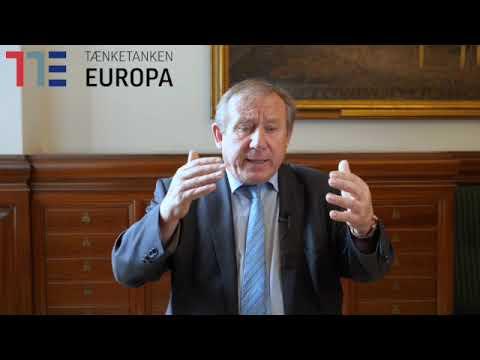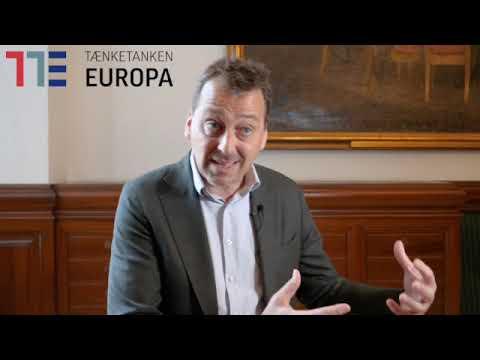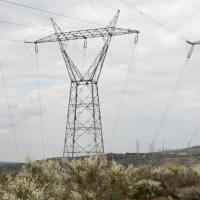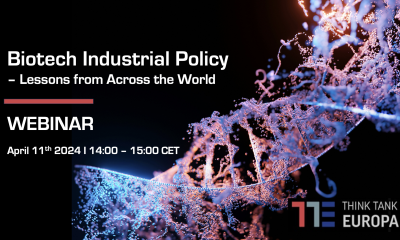High-level Insights: conference on the EU’s future agricultural policy
On March 31st, 2023, Think Tank EUROPA and the Danish Food & Agricultural Council hosted a high-level conference on the future of the EU’s agricultural and food policy at Christiansborg.
Think Tank EUROPA has produced this note, summarising the high-level insights from the conference.
Food security or food sustainability?
When European Heads of State and Government signed the Versailles declaration in March 2022, they elevated Europe’s food production to a strategic sector, thereby underscoring that food policy increasingly is security policy. The EU needs to think strategically about what it produces, how much it produces, and which countries it relies upon for essential agricultural inputs like fertilizers. Yet, the EU is also driving an ambitious green transition of its agricultural sector, that is key to the long-term food security of the continent but may in the short- and medium-term drive up prices and require major changes of the agricultural sector. How to balance the EU’s ambitions for the green transition with the return of geopolitics to Europe was therefore a central theme of the conference.
Respecting planetary boundaries
The EU must increase production without increasing agricultural land-use. For this to happen the EU must significantly reduce overall food waste, promote plant-based agriculture production and diets, and improve agricultural efficiency. The EU’s “Farm to Fork strategy” signals a positive start in the right direction, but additional efforts are required to make sure the EU’s agricultural sector transitions to a greener production that respects boundaries of the planet. According to the conference panelists this can be achieved in different ways. For example, some member states may choose to embrace intensive farming, while reducing agricultural land-use, whereas other member states may opt for extensive farming, which requires more agricultural land-use, at a lower cost to the environment. The Commission’s challenge will be creating a regulatory framework that is both efficient and affords member states the flexibility to pursue sustainability, in a way that is best suited to their diverse needs.
European food production in a global context
The EU currently imports more calories than it exports1 ,in large part due to its intensive livestock production, a majority of which is destined for export2 , and because of the large amount of food waste in the food and agricultural sector. The EU is also reliant on importing key agricultural inputs like fertilizers from Russia3 . Russia’s invasion of Ukraine has exposed the vulnerabilities of the European agricultural sector, with higher energy prices driving an increase in the price of fertilizers. In this context, reflection is required on how the EU can organise its production to increase its resilience and sustainability, for example, boosting organic and/or precision farming. In addition, reflection is required on where European agribusinesses position themselves in the agricultural supply chain and which types of products should dominate agricultural production, both considering concerns about food security and the green transition. For example, the EU is a net importer of animal feed and for this it relies on large areas of land both inside and outside of the EU, to sustain its intensive livestock production.
A just transition for European farmers
The green transition of the agricultural sector must not leave behind farmers and farm labourers, who provide an important public service for the EU. Farmers in the EU earn on average only 76% of the total EU-average income, with many depending on direct support schemes to sustain their income4 . The agricultural sector also faces questions about its medium- to long-term demographic sustainability, as too few young people are opting to join the industry. For example, in 2016 only 11% of farmers were under the age of 405 . Similarly, between 2005 and 2020 approximately 5.3 million farms across the EU were lost, which corresponds to a 37% decline. This indicates the scale of the demographic challenge facing the sector6, 7 .
If the green transition is to succeed and food security secured in the long-term farming must be more profitable employed in the industry. At the same time, the EU must ensure that food is available at affordable prices for European consumers.
Promoting technology and innovation
Promoting technology and innovation is essential for the EU to achieve a just and sustainable transition in its agricultural sector. Precision farming and new breeding techniques are advancements that could help the agricultural sector optimize production and reduce environmental impact. There is a consensus that approval times in the EU for innovative farming technologies like biopesticides, or New Genomic Techniques (NGT), lags behind the EU’s peers, like the USA and South America. For example, the European company BioPhero, which produces sustainable alternatives to synthetic plant protection products, decided to bring its biopesticide to market in South America first, where it faced shorter approval times, compared to the 5-8 years BioPhero expected to wait for approval in the EU8 . This hinders innovation and means that European companies at the frontier of biotech research increasingly are conducting much of their research outside European borders.
Some panelists also highlighted the role that NGT can play in strengthening agricultural resilience against a changing climate, for example, by increasing drought tolerance in crops, or by developing plants that produce natural insecticides, which reduces the need for synthetic pesticides. Creating a regulatory framework that is favorable to innovation all while respecting consumer concerns is key to making the EU an attractive place for advancing next-generation technological solutions in the agricultural sector.
PROGRAMME:
09.00 - 09.10 - WELCOME AND INTRODUCTORY REMARKS
09.10 - 09.30 - KEYNOTE: PLAYING TO OUR STRENGTHS: DANISH STRONGHOLDS IN FOOD & AGRICULTURE with Lars Gregersen, Executive Director at the Danish Agricultural Agency.
09.30 - 10.00 - KEYNOTE: WILL FARM TO FORK STRENGTHEN EUROPEAN FOOD SOVEREIGNITY? with Wolfgang Burtscher, Directorate-General for Agriculture and Rural Development.
10.00 - 11.00 - PANEL: RETHINKING EUROPEAN FOOD POLICY – BALANCING EUROPEAN FOOD SOVEREIGNTY AND GLOBAL EXPORTS
- Asger Christensen, RENEW Europe, MEP
- Harriet Bradley, Head of Programme: CAP and Food, Institute for European Environmental Policy
- Søren Søndergaard, President of the Danish Agriculture & Food Council
- Jesper Pagh, Group COO, DLG
- Ida Auken, the Social Democratic Party, Member of the Danish Parliament
11.00 - 11.15 - BREAK
11.15 - 12.15 - PANEL: THE FUTURE OF EUROPEAN AGRICULTURE – TOWARDS AN EVER-GREENER PRODUCTION
- Claus Crone Fuglsang, Executive Vice President, Novozymes
- Tavs Nyord, Senior Consultant at the Future Food Program, CONCITO
- Pekka Pesonen, General Secretary, Copa-Cogeca
- Hanne Søndergaard, Executive Vice President, Agriculture, Sustainability & Communications, Arla
- Helle Borup Friberg, CEO, Organic Denmark
12.15 - 13.00 - MODERATED CONVERSATION: FROM GLOBAL RECOMMENDATIONS TO DANISH POLIC
- Erling Bonnesen, Venstre, Member of the Danish Parliament
- Christian Friis Bach, De Radikale, Member of the Danish Parliament
The event was moderated by Lykke Friis, Director of Think Tank EUROPA, and organised by Think Tank EUROPA in collaboration with the Danish Agriculture & Food Council.
This event is part of Think Tank EUROPA’s 'Biosolutions 2030 – Towards a paradigm shift in European agricultural and food policy' project and is financed by Novo Nordisk Foundation (NNF22SA0080353).
- 1www.wwf.eu/
- 2agriculture.ec.europa.eu/system/files/2022-06/monitoring-agri-food-trade_mar2022_en.pdf
- 3www.fertilizerseurope.com/fertilizers-in-europe/facts-figures/
- 4agricecon.agriculturejournals.cz/pdfs/age/2021/04/01.pdf
- 5ec.europa.eu/eurostat/web/products-eurostat-news/-/ddn-20180719-1
- 6ec.europa.eu/eurostat/statistics-explained/index.php.
- 7This figure should be treated as indicative definitional changes to what is considered a ‘farm’ as well as data uncertainty
- 8em.dk/media/14197/biosolutions-i-danmark-analyse-af-biooekonomiens-potentialer-og-vaekstbetingelser.pdf
The Think Tank EUROPA does not take collective positions. This publication only represent the views of their individual authors.

